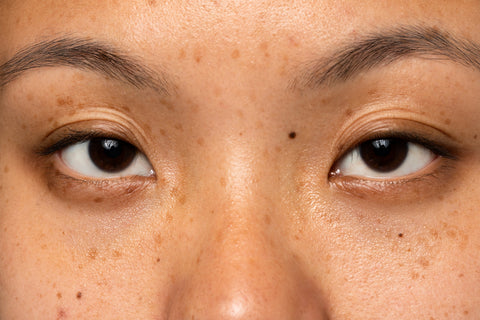Activated charcoal, also called activated carbon is made from natural organic material and activated to ensure it adsorbs three to four times more toxins and gas from gastrointestinal track than ordinary charcoal. Activated Charcoal is produced by heating of dry wood, coconut shells, or other natural substances in the absence of oxygen and under pressure to open up millions of small spaces between the carbon atoms and turn it literally into a “sponge” that adsorbs impurities and harmful substances. That is why activated charcoal is used for water filtration. In fact, most hospital emergency rooms use a charcoal solution for medication overdoses and accidental poisonings.
It was estimated that just one teaspoonful of activated charcoal has about the same total surface area as a football field! This enormous surface area provides activated charcoal with innumerable bonding sites, and when chemicals that are attracted to carbon pass by they are attached to the surface. Due to this effect charcoal is regarded as highly effective in absorbing many poisons from human gastrointestinal tract.
Among the most common substances that can be adsorbed and neutralised by activated charcoal are the following: Mercury, Lead, Narcotics, Cocaine, Opium, Nicotine, Arsenic, Chlorine, Gasoline, Aspirin, Paracetamol, Penicillin, Morphine, Valium, Pesticides, Radioactive Substances, Phenol, Methyl, Hydrochloride, Kerosene, Acetate, Digitalis, Quinine, Theophylline, Carbon dioxide, and many others.
Charcoal helps absorb and neutralise gas created by indigestion and food fermentation in the stomach and intestinal tract. It has repeatedly proven to be very beneficial in assisting body’s detoxification process and especially for numerous gastro-intestinal problems such as gas, flatulence, bloating, nausea, poisoning, diarrhoea, heart burn, aspirin, paracetamol and other medication overdose, kidney and liver failure, body odour or bad breath.
Charcoal powder mixed with water can be also used externally for oral hygiene, various skin inflammations, insect and snake bites, cuts and burns, or mouth, eye and ear infections. Opening a capsule and using charcoal powder and brushing the teeth with it is regarded as very effective for stained teeth.
Numerous studies have shown that regular ingestion of charcoal is safe for both adults and children. The only side effect which may sometimes occur as a result of ingesting excessive doses of charcoal is constipation, especially when taking charcoal is accompanied by drinking insufficient amount of water.
Charcoal should be taken two hours before or after taking medication as otherwise it may adsorb and inactivate it. However, it is advisable to check with your physician before beginning treatment with charcoal if you are taking prescription drugs.
Charcoal is not effective in every poisoning situation so consult a Poisons Information Service or a physician for instructions.
To make a small external poultice: Open about 5 charcoal capsules (1 teaspoon of activated charcoal powder) and mix it with 1 teaspoon of ground flax seeds or corn starch in 1 tablespoon (or more if required) of very hot water. Stir until blended and cool to room temperature. Place mixture generously on a strip of gauze large enough to cover the area and tape the sides so that the mixture does not leak. Leave for at least 3 hours or overnight.
Do you complain about hair loss, low mood, white spots on the fingernails, dry skin, changes in appetite, salty/sweet foods cravings, low stamina, fertility & prostate problems, lack of sex drive, recurrent infections, weight gain/loss, tiredness, sleeping problems, hormonal imbalance, poor concentration, memory, and allergies?
If you do experience some of these signs, it might be time to start considering Zinc deficiency.
Due to soil depletion, poor refined diet, high sugar consumption, stress, stimulants (caffeine, alcohol, etc.) and other factors at least 2 billion people around the world suffer from lack of this essential mineral.
Zinc is present everywhere in our body and is required to maintain normal metabolism (body weight), brain and nervous system function, healthy immune system, strong bones & teeth, night vision, acid production in the stomach, healthy liver, and normal blood glucose levels.

Zinc Deficiency
Deficiency may be associated with the following symptoms and health problems:
Weak immune system, frequent infections, increased risk of cancer, autoimmune diseases, prostate problems (including prostate cancer and enlargement), hormonal imbalance, male infertility, erectile dysfunction, sleep problems, hair loss, diarrhoea, allergies, dry skin, and skin lesions. Furthermore, lack of sex drive, mental lethargy, obesity, anorexia, depression, chronic fatigue, insomnia, diabetes, psoriasis, acne, eczema, sinus problems, Alzheimer’s disease, AIDS and pyroluria, Lyme disease, autism, and white spots on the fingernails.
Zinc Benefits for Men
Normal hormonal balance
It benefits hormonal health and fertility because it plays an important role in hormone production, including testosterone (male sex hormone), thus promoting normal stamina, prostate health and helps build muscle mass in men. The prostate cannot function properly without it, as it contains more Zinc than any other organ in the body.
Zinc Benefits for Women
Normal hormonal balance
It is also needed to produce female sex hormones oestrogen and progesterone which support fertility and greatly influence mood and menstruation.
Healthy hair, skin & nails
Zinc deficiency can lead to deterioration of the protein that makes up the hair follicle thus causing hair shedding & loss. It is essential for beautiful skin as it helps skin maintain supply of Collagen which prevents wrinkly, sagging skin. Without it, the skin has a hard time repairing itself, as it is required for cell division. Zinc deficiency can be a root cause of acne, nail splitting & abnormal discolouration of fingernails.
Benefits for Men & Women
Strong immune system
It makes the immune system strong enough to fend off infections. In addition, it helps reduce the risk of various cancers and autoimmune diseases. It strengthens our immune system by stimulating antibody production and it has proven to be toxic to certain types of viruses. It also speeds up recovery & helps minimise unpleasant signs associated with flu or cold, such as runny nose or tiredness.
Metabolism and blood glucose levels
Zinc deficiency is associated with insulin resistance, obesity and anorexia. There are individuals who even claim to recover from anorexia and bulimia after taking zinc supplements because in their case the main problem was severe deficiency.
A study on obese children, demonstrated that supplementation significantly reduced blood glucose and insulin levels, thus reducing conversion of sugar to fat (stimulated by high blood levels of insulin). It has important effects on metabolism, and on the thermoregulation of obese individuals.
Obesity combined with deficiency promotes the development of chronic systemic inflammation. Obese individuals have an increased incidence of developing zinc deficiency, have lower dietary intake, and therefore exhibit more systemic inflammation. Zinc deficiency perturbs immune functions and promotes systemic inflammation. Recent studies have demonstrated that obesity can be associated with systemic inflammation which leads to atherosclerosis, asthma, and other health problems. In obese people, adipose tissue releases specific adipokines which lead to infiltration by macrophages, thus promoting the production of inflammatory mediators.
Studies investigating the relationship between zinc and Leptin show that it can critically impact leptin secretion. Individuals who had a zinc deficiency, caused by refined diet were supplemented and it was found there was a significant increase in leptin secretion.
Strong bones and teeth
It helps Vitamin D to function. It’s also important in making sure that the Calcium we get from foods or supplements is used in our bones. Without it, calcium tends to be deposited in the kidneys (contributing to kidney stones) and in arteries, where together with cholesterol causes their hardening, thus contributing to heart attacks and strokes.
Production of stomach acid and protein digestion
It is used in our body to produce stomach acid. Low stomach acid can be a sign of zinc deficiency. That is why, when the amount in our body is insufficient, then the protein from food cannot be properly digested in the gastrointestinal tract. As a result, these undigested and large protein molecules enter the bloodstream, where they are recognized by the immune system as potentially dangerous foreign bodies, inducing immune reaction and histamine secretion which, creates allergy symptoms.
Other Benefits
-
It regulates taste and appetite, improves metabolism, memory, and night vision.
-
It is necessary for optimal development and growth of human body or maintaining proper blood sugar level.
-
It is believed that it may even work as an antioxidant preventing DNA damage and cancer.
-
It works as an antioxidant slowing down the ageing process and preventing healthy cells from becoming abnormal.
-
It is also used in our body to create superoxide dismutase (SOD), one of the most powerful antioxidants.

Supplements
As far as supplementation is concerned, Zinc Citrate and Gluconate are the best forms.
Dosage
The Recommended Daily Allowance is about 10 to 15mg for adults. Some specialists, recommend at least 25mg to 100mg per day, but no more, unless in specific situations. Overdoses can lead to nausea, vomiting, stomach pain or diarrhoea.
Dietary Sources
High amounts can be found in pumpkin seeds (often regarded as the highest source), garlic, Brazil nuts, whole meal breads, whole grains, mushrooms, nuts, and seeds. These sources, however, are dependent on the presence in the soil. Unfortunately, if the soil is depleted, which in most cases is, the food also will contain insufficient amount of this extremely important mineral. In this case supplementation seems to be the only solution to avert zinc deficiency.
Causes of Zinc Deficiency
- Soil depletion is regarded as one of the main reasons why we can develop a zinc deficiency, because if this mineral is not present in the soil, then also plants will be deprived of it. Even organically grown vegetables may not contain the proper amount of minerals as organic farming only solves the pesticide pollution problem. It is believed that the best way to receive vegetables high in minerals is through bio-dynamic farming, which involves supplementing soils with natural compost and crop rotation.
- Zinc deficiency is exacerbated by certain drugs and eating too many refined foods (white flower products, sugar, sweets, pizza, spaghetti, etc.) which contain very low amounts. High sugar consumption leads to insulin surges which uses up the supply in our body. IUDs (intrauterine devices) and birth control pills, which may contain copper, may cause a build-up of copper, which is toxic and contributes to zinc deficiency, as these two minerals are antagonistic to each other.
- Caffeine containing products inhibit the absorption of zinc, magnesium, calcium, iron, manganese and copper. Also, alcohol contributes to calcium, manganese, chromium and zinc deficiency. Iron and calcium supplements may reduce absorption.
- Mercury toxicity caused by using amalgam fillings, vaccines and fish consumption can block absorption, as the mercury binds with these minerals. In this case, it is suggested that even supplementation will not solve this problem, without proper detoxification. One of the best ways to detoxify the body from mercury is through regular intake of organic
Nausea
Supplements often cause nausea and for this reason they should always be taken after meals and not on an empty stomach. Unfortunately, even when ingested after meals, it can still trigger nausea. Zinc Citrate is the only form which doesn’t cause nausea.
Copper
Proper balance between zinc and copper is critical to maintaining health. They compete against one another as they are antagonists. Therefore, having too much of one may cause deficiency of the other. Taking zinc supplements is important because it prevents copper accumulation and toxicity. On the other hand, taking them alone can lead to copper deficiency which may contribute to premature grey hair and hair loss, weak immunity, poor bone health, arthritis, muscle and/ or joint pain, fatigue, digestive problems, Crohn’s disease, low body temperature, feeling cold, skin problems, unexplained weight loss or bruising.
To prevent copper deficiency, it is recommended to take 1mg of copper per every 25mg of zinc.
Other Recommendations
If possible, avoid Iron and Calcium supplements as they reduce zinc absorption.
Vitamin D and Selenium, increase the bioavailability of zinc.
Any information or product suggested on this website is not intended to diagnose, treat, cure or prevent any medical condition. Never disregard medical advice or delay in seeking it because of something you have read on this website. Consult your primary healthcare physician before using any supplements or making any changes to your regime.
Related Articles
Sources and References
- Suzuki, H.; Asakawa, A.; Li, J. B.; Tsai, M.; Amitani, H.; Ohinata, K.; Komai, M.; Inui, A. (2011). Zinc as an appetite stimulator – the possible role of zinc in the progression of diseases such as cachexia and sarcopenia. Recent Pat Food Nutr Agric. 2011 Sep; 3(3):226-31.
- Su JC, Birmingham CL. Zinc supplementation in the treatment of anorexia nervosa. Eat Weight Disord 2002; 7:20-2.
- David F. Horrobin, M.D., Ph.D., Zinc, St. Albans, Vt.: Vitabooks, Inc., 1981, p. 8.
- Carl C. Pfeiffer, Ph.D., M.D. Zinc and Other Micro-nutrients, Keats: New Canaan, Conn., 1978, p. 45.
- Jing MY, Sun JY, Wang JF. The effect of peripheral administration of zinc on food intake in rats fed Zn-adequate or Zn-deficient diets. Biol Trace Elem Res 2008; 124:144-56.
- Birmingham CL, Gritzner S. How does zinc supplementation benefit anorexia nervosa? Eat Weight Disord 2006; 11: e109-11.
- Safai-Kutti S. Oral zinc supplementation in anorexia nervosa. Acta Psychiatr Scand Suppl 1990; 361:14-7.
- Selvais PL, Labuche C, Nguyen XN, Ketelslegers JM, Denef JF, Maiter DM. Cyclic feeding behaviour and changes in hypothalamic galanin and neuropeptide Y gene expression induced by zinc deficiency in the rat. J Neuroendocrinol 1997; 9:55-62.
- Lee RG, Rains TM, Tovar-Palacio C, Beverly JL, Shay NF. Zinc deficiency increases hypothalamic neuropeptide Y and neuropeptide Y mRNA levels and does not block neuropeptide Y-induced feeding in rats. J Nutr 1998; 128:1218-23.
- Kennedy KJ, Rains TM, Shay NF. Zinc deficiency changes preferred macronutrient intake in subpopulations of Sprague-Dawley outbred rats and reduces hepatic pyruvate kinase gene expression. J Nutr 1998; 128:43-9.
- Jing MY, Sun JY, Wang JF. The effect of peripheral administration of zinc on food intake in rats fed Zn-adequate or Zn-deficient diets. Biol Trace Elem Res 2008; 124:144-56.
- Birmingham CL, Gritzner S. How does zinc supplementation benefit anorexia nervosa? Eat Weight Disord 2006; 11: e109-11.
- Safai-Kutti S. Oral zinc supplementation in anorexia nervosa. Acta Psychiatr Scand Suppl 1990; 361:14-7.
- Selvais PL, Labuche C, Nguyen XN, Ketelslegers JM, Denef JF, Maiter DM. Cyclic feeding behaviour and changes in hypothalamic galanin and neuropeptide Y gene expression induced by zinc deficiency in the rat. J Neuroendocrinol 1997; 9:55-62.
- Lee RG, Rains TM, Tovar-Palacio C, Beverly JL, Shay NF. Zinc deficiency increases hypothalamic neuropeptide Y and neuropeptide Y mRNA levels and does not block neuropeptide Y-induced feeding in rats. J Nutr 1998; 128: 1218-23.
- Kennedy KJ, Rains TM, Shay NF. Zinc deficiency changes preferred macronutrient intake in subpopulations of Sprague-Dawley outbred rats and reduces hepatic pyruvate kinase gene expression. J Nutr 1998; 128: 43-9.
- Mantzoros CS, Prasad AS, Beck FW, Grabowski S, Kaplan J, Adair C, et al. Zinc may regulate serum leptin concentrations in humans. J Am Coll Nutr 1998; 17:270-5.
Images: Image by diana.grytsku on Freepik
Any information or product suggested on this website is not intended to diagnose, treat, cure or prevent any medical condition. Never disregard medical advice or delay in seeking it because of something you have read on this website. Consult your primary healthcare physician before using any supplements or making any changes to your regime.





